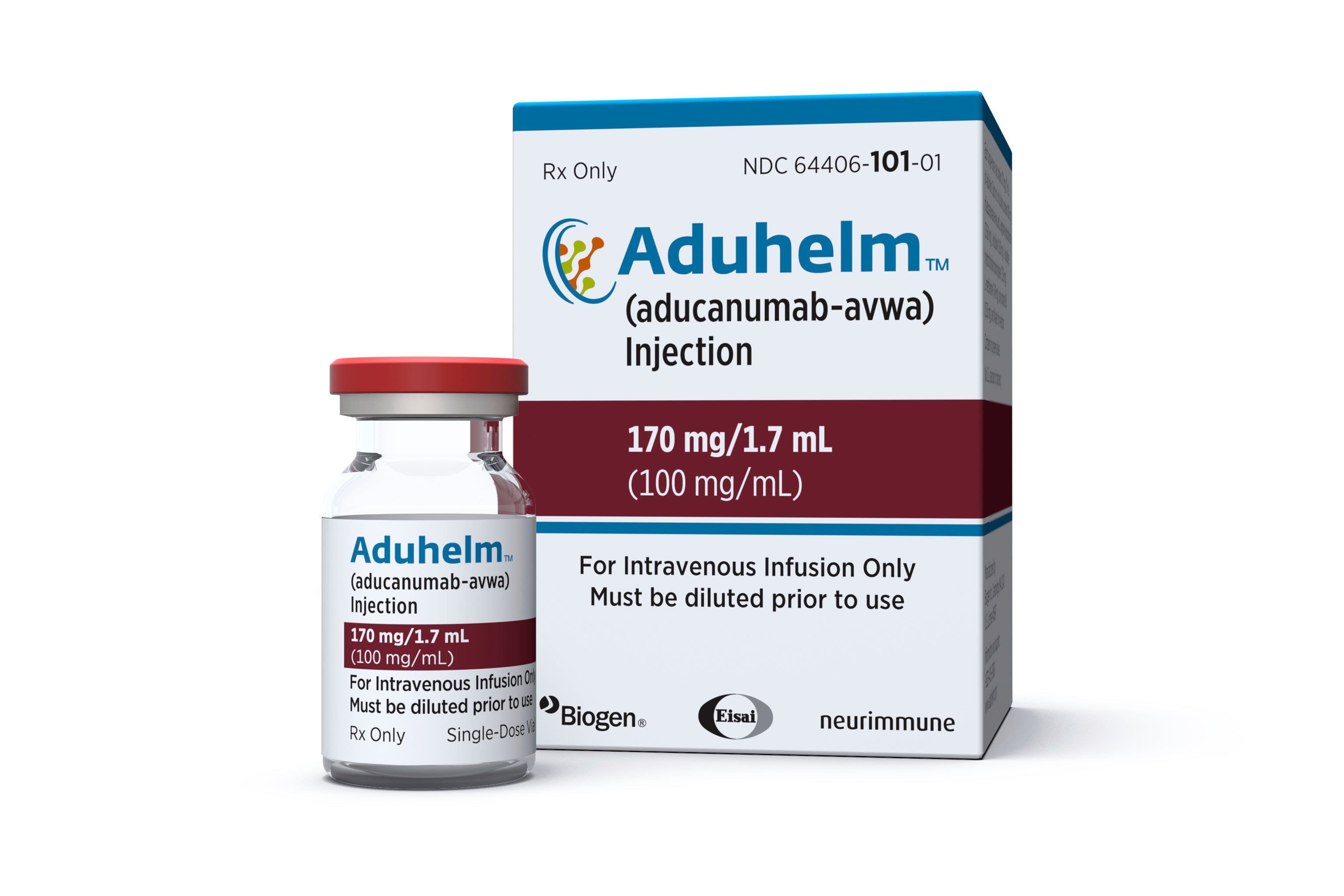Medicare copays for new Alzheimer's drug could reach $11,500
A new report says the $56,000 Alzheimer’s drug approved this week would raise Medicare premiums broadly

Your support helps us to tell the story
From reproductive rights to climate change to Big Tech, The Independent is on the ground when the story is developing. Whether it's investigating the financials of Elon Musk's pro-Trump PAC or producing our latest documentary, 'The A Word', which shines a light on the American women fighting for reproductive rights, we know how important it is to parse out the facts from the messaging.
At such a critical moment in US history, we need reporters on the ground. Your donation allows us to keep sending journalists to speak to both sides of the story.
The Independent is trusted by Americans across the entire political spectrum. And unlike many other quality news outlets, we choose not to lock Americans out of our reporting and analysis with paywalls. We believe quality journalism should be available to everyone, paid for by those who can afford it.
Your support makes all the difference.A new $56,000-a-year Alzheimer’s drug would raise Medicare premiums broadly, and some patients who are prescribed the medication could face copayments of about $11,500 annually, according to a research report published Wednesday.
The drug, called Aduhelm, was approved by the Food and Drug Administration only this week. It's the first Alzheimer's medication in nearly 20 years, though it doesn't cure the life-sapping neurological condition. Some experts question whether Aduhelm provides any benefit to patients, but the FDA determined it can reduce harmful clumps of plaque in the brain, potentially slowing dementia.
Wednesday's analysis by the nonpartisan Kaiser Family Foundation comes as congressional Democrats are trying to build consensus around legislation that would empower Medicare to negotiate prescription drug prices.
The chairman of the Senate Finance Committee Democratic Sen. Ron Wyden of Oregon said the list price for the Alzheimer's drug was “unconscionable.” Although President Joe Biden has called for granting Medicare negotiating authority, prospects for the bill are uncertain.
The Kaiser report estimated that if just 500,000 Medicare recipients are prescribed Aduhelm, it would cost the program nearly $29 billion a year, far more than any other medication.
“At this price, the cost of this one drug alone could top all others covered by Medicare, if it is used widely,” said Tricia Neuman, coauthor of the report.
Medicare has not made a formal determination on covering Aduhelm, but cost traditionally does not enter into such considerations. Drugmaker Biogen has said it priced Aduhelm responsibly.
Alzheimer's affects about 6 million Americans, the vast majority old enough to qualify for Medicare. "The approval of Aduhelm provides the latest high-profile example of the potential budgetary consequences of Medicare’s role as a price-taker in the pharmaceutical marketplace,” the Kaiser analysis concluded.
In addition to higher taxpayer costs, the domino effects would include higher “Part B” premiums for Medicare's outpatient coverage and increases in monthly premiums for millions with supplemental “Medigap” plans. As an infusion drug that would be administered in a doctor's office, Aduhelm is covered by Medicare's outpatient care benefit. The Part B standard premium, paid by most enrollees, is currently $148.50 a month.
Beyond monthly premiums, there would also be impacts on out-of-pocket costs. Many patients taking the medication, including those signed up in Medicare Advantage plans from private insurers, could face thousands of dollars in copayments,. The maximum could reach about $11,500, researchers estimated.
That upper-bound cost out of patients' budgets would translate to nearly 40% of the $29,650 estimated median income for Medicare beneficiaries.
“Because Aduhelm is not a cure for Alzheimer’s disease, patients could incur these annual out-of-pocket costs over multiple years,” the report noted.
Biogen, which developed the Alzheimer's drug with Japan’s Eisai Co., said earlier this week that it expects a gradual uptake and not a sharp “hockey-stick” spike.
Biogen priced the drug after careful research, said Chirfi Guindo, Biogen's head of global product. Biogen has committed to no price increases for four years.
Guindo said that the company looked at prices for advanced medications to treat cancer and other complex conditions. “We have priced Aduhelm at roughly a third the level of the cancer immunotherapies,” he said during a teleconference this week. “So, we consider this to be a really responsible price and we consider this to be a price that is sustainable for the system.”
Medicare has a review process known as a National Coverage Determination to evaluate new treatments that could have far-reaching implications for the program. Officials have not yet said how the program will proceed with Aduhelm. It's possible Medicare could set conditions for covering the drug, based on clinical effectiveness.
The program covers more than 60 million people, including those 65 and older, as well as people who are disabled or have serious kidney disease. Medicare spending is approaching $1 trillion a year.